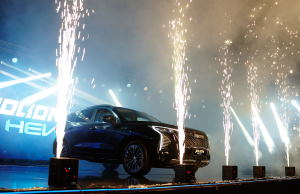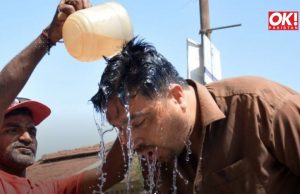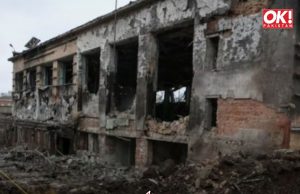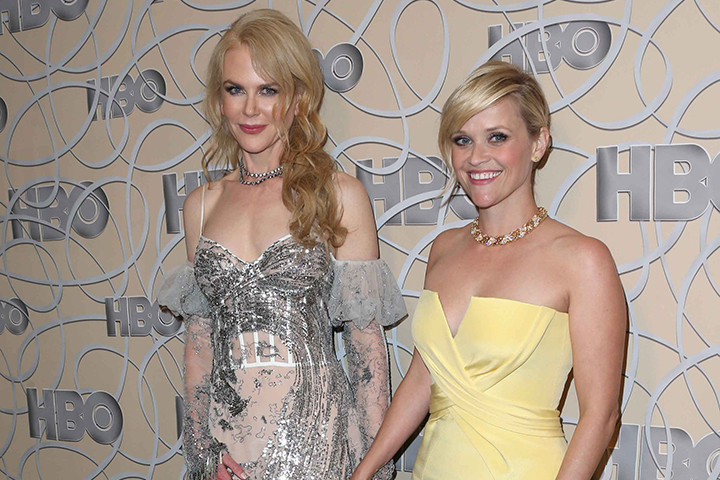
“MY DAUGHTER SAID TO ME THAT I WAS OVER PROTECTIVE”
Hollywood stalwarts Reese Witherspoon and Nicole Kidman have teamed up to produce a brand new TV series Big Little Lies, which focuses on the lives of five women. Also starring Shailene Woodley, Laura Dern and Zoë Kravitz, based on the best-selling book by Liane Moriarty, it explores family, friendships and facades with truth, humour and lots of heart. Written by David E. Kelley and directed by Jean-Marc Vallée, Big Little Lies is set in a community of complicated, challenging and loving families in Monterey, California. Alexander Skarsgard and Adam Scott also star in the series produced by Witherspoon and Kidman.
OK! caught up with the star duo at the recent Television Critics Association Winter press tour to talk about what audiences can expect from their TV passion project.
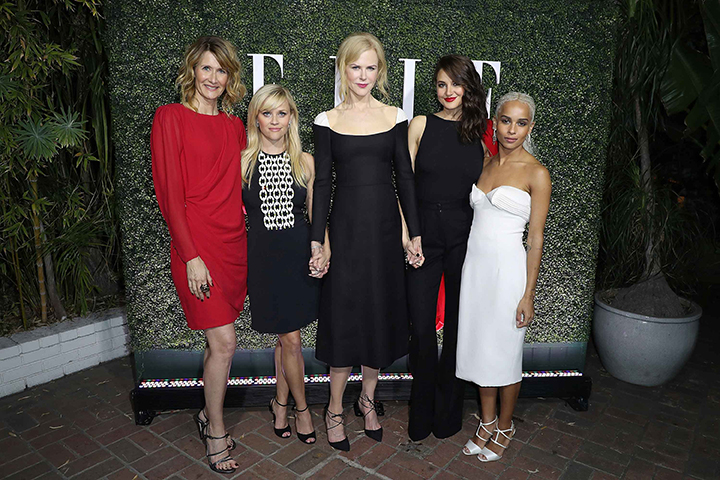
Firstly, do you know these women? Women who are sort of these helicopter moms?
Reese Witherspoon: Well, I think what was great about reading the novel for the first time, Liane Moriarity’s novel, is I saw myself in different stages of motherhood all through my life. So I was a mom when I was 22, like Jane; and then I was a mom who was 40, like Madeline. I’ve been divorced, I’ve been remarried. There were just so many aspects of it that were so relatable to the lives of women, and the really amazing part was actually digging deep into the lives of women. It wasn’t about them being good or bad. It’s just that they showed every spectrum, every colour of women’s lives. And I thought that was a really unique opportunity to have so many incredible parts for women in one piece of material.
Nicole Kidman: Yeah. I was lucky because when I read the book, I really related to all of the women in the book, and I’ve met many women that feel the same way when they read the book. And I think when you see the series, I wouldn’t call them ‘helicopter parents’, ‘helicopter mothers’. I mean, some of them are very attentive. Others are – I mean, there’s just such an array of emotions in this piece, and that’s what we were excited to show. We were excited to show the lives of these women in a very authentic way, and, yet, entertaining.
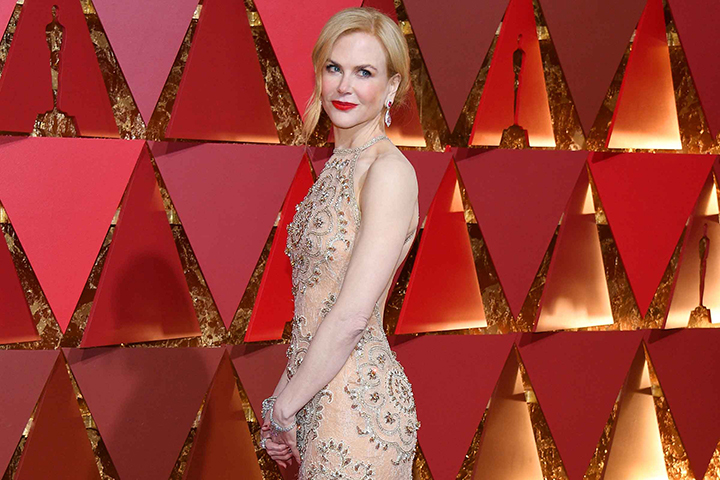
Can you talk about the style? Did you guys have any say in the style of your characters, what they wore?
RW: Yeah, certainly. You always think about your character and what they would wear.
NK: Yeah. I mean, we worked with Jean-Marc Vallée, in terms of finding it – because when you have five women, you’re trying to find how they dress, and how they present themselves to the world. When you know psychologically what they’re feeling, then that plays out on how you dress a lot of times, and, in particular, for my character, Celeste, there was a way in which we wanted to present her, because she has sort of barriers that she has to put up for protection because of things that are going on in her life, yet she wants to be, I suppose, very presentable, but neutral, if that makes sense.
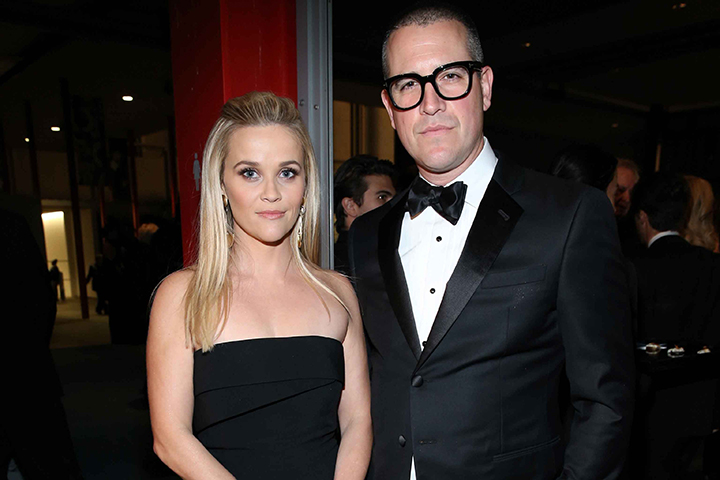
In terms of where you are in your careers now, can you speak a little bit on what qualities of women or attitudes or quirks that women have that you enjoy exploring in your work now?
RW: The constant sort of question for me is how am I discovering something about a woman on film that I’ve never seen before? And how am I creating something that hasn’t been done before? And with this piece, I feel like it was such a unique opportunity to have women of every age, every colour talking about motherhood. And that is sort of a common denominator.
Motherhood is the great equaliser. Parenthood is a great equaliser, and socioeconomically, it sort of brings these five disparate women together in a way that they clash, but they also understand and discover each other you know, as similar spirits by the end of the series. And I think – that’s what I’m always looking for, something new, and something challenging.
It’s pretty clear that most of these characters really deeply love their kids and would do almost anything for their kids, yet often they are not turning out to be doing good for their kids at all, and overdoing it a lot. You’ve observed a lot of people in your life. Is there this tendency to over-parent? Were you maybe under-parented more as a kid than people do nowadays, and so on?
RW: It’s definitely interesting, because I’ve had kids at 22, 27, and then at 37, and there is a wild difference, I think. Having kids really young, I think you have a different – ‘Oh, they’re going to be fine. I don’t worry about it at all.’ And then as you get older you’re like, ‘Oh, am I taking them to the ballet? ‘ Like, things that, you know, when you get past survival, I think that’s part of what is so interesting about the piece and about motherhood, and it’s like – it’s about what you think you’re creating for your children, and when it’s really just sort of an artifice. And I think that’s what the show deals with a lot, the artificial sort of presentation of parenthood, versus real parenthood. All of us have a great journey to become deeper, better parents by the end of it as well.
NK: Yes. You learn as you go along. But I do have to say, my daughter, Sunday, said to me this morning that I was over protective, so you must have been a fly on the wall.
We see the differences in the five women but do you think the character that you play for each of you sees herself and her predicament?
NK: I mean, I can speak for my character, Celeste. No. That’s part of the arc of the performance, is discovering deep, deep truths, and having to confront them and place them. It’s very, very difficult at times. And that was a real balance, an unravelling actually, because it was an unravelling of the relationship. I am not sure if everyone has seen all seven – the seven hours, because I do – I implore people to see the full seven hours, because you will see the strength of what he’s done, and also the camaraderie, because it’s an important part of it. As much as there is conflict between us, when you see the full seven hours, there are pieces about women helping each other and supporting each other, which was very important to Reese and I.
Reese, is your character self-aware?
RW: She is aware she is the most dynamic person in the room. I think she’s hyperaware of a lot of things, and deeply upset. I always – when I started playing this character, I was like, ‘I’m not sure I can play this character’. And David and Jean-Marc and Nicole were like, ‘What are you talking about? You’re perfect for this character.’ Really? I don’t know if I find that sort of offensive. Bossy know-it-all, busybody. But then she becomes aware through the process, and as you get further into the series, you start to realise the reason that she is so controlling and so high strung, and so tightly wound, is really because she’s concealing something very difficult for her to hold. And when she finally let’s it go in the end of this series, she can finally see her truth and become more of a – I don’t know – a little more mellow, I guess.
Why did you go to Jean-Marc? What was the process behind that?
RW: Well, I just want to say, briefly, about Jean-Marc, because it’s hard for him to talk about how incredibly genius and amazing he is, but I’ve never worked with a director who felt the performances, who will sit and cry with you about what your character is feeling, is there with you. He is not separate. He is not watching you. He is part of the performance, and he doesn’t see race, he doesn’t see gender. He’s just the most compassionate human, who also loves the visual beauty and the music, which is extraordinary, and pushes the narrative forward with its sort of mystery. So I’ve had the privilege to work with him twice, and the true story is he was signed up to do one or two, and then we all attacked him and begged him to do more, because it just became clear, it was in him. These characters were part of something – a story he needed to tell, which is real.
NK: And he is an auteur. So to have somebody else step in and try to mimic his style and his voice, it wouldn’t have worked, so we were very lucky.
RW: Very lucky.
It seems like this has been a very comfortable, very happy merging for the two of you. Can you talk about that a bit?RW: Certainly.
NK: Yeah. It was – I mean, we’re very, very close friends and we’re able to talk about anything. A lot of the conversation is personal and then we would do work, which is a great way, and we’re – I love that it’s about women coming together and making something happen very quickly with friendship being the core of it. We have fun and we – we’re both at a stage in our lives – I am – where I want to be with people I really like.
“I don’t want to be working on things with people that I’m not happy to be there. I want to be contributing and working with people that I like and love, and this is – this was the perfect combination.”
RW: Yeah. It’s a unique opportunity, first of all, working with these two beautiful, amazing, incredibly talented young women as well. It was such – I couldn’t believe you both signed on. I called Nicole…
NK: No. We were like ‘What?’
RW: ‘I can’t believe it. We just got Shailene Woodley.’ ‘Zoë Kravitz is really going to do it? Are you kidding me?’ So we were really excited. You know, the beautiful thing about the way Jean-Marc works, it’s not like you sit and rehearse and rehearse. He doesn’t like a lot of rehearsal. He encourages us to have dinner and talk about our lives and become real friends and actually share each others’ experience so that when you get to the actual scene on the day, there’s an understanding of each other that’s so much deeper than character. It’s like we see each other as humans, and whatever they’re going through. I follow them all the time. We connect all the time. But we are on this journey as women. And it’s so interesting too because Nicole and I were reflecting about this during the shooting.
“For 25 years, I have been the only woman on set, so I had no
other women to talk to. They call it like the Smurfette Syndrome where she’s got 100 Smurfs around, but she’s the only girl.”
And who gave birth to all these Smurfs anyway? [laughs] We’re Smurfettes. But honestly, it’s so refreshing to get to spend time with women. And there would be times where I couldn’t break my character. I would call Nicole and go ‘What do you think I should do with this scene? I can’t play this.’ Or I would sit with Laura Dern in a car and go ‘My character – I just can’t say those words. What would you say if you had to say this?’ And honestly, we just like nurtured each other’s performance. We would send each other articles and say ‘Did you see this?’ It was really a collective performance of all of us. I really feel more strongly than anything I’ve ever done that this is the greatest ensemble experience I’ve ever had.
NK: Hear, hear!
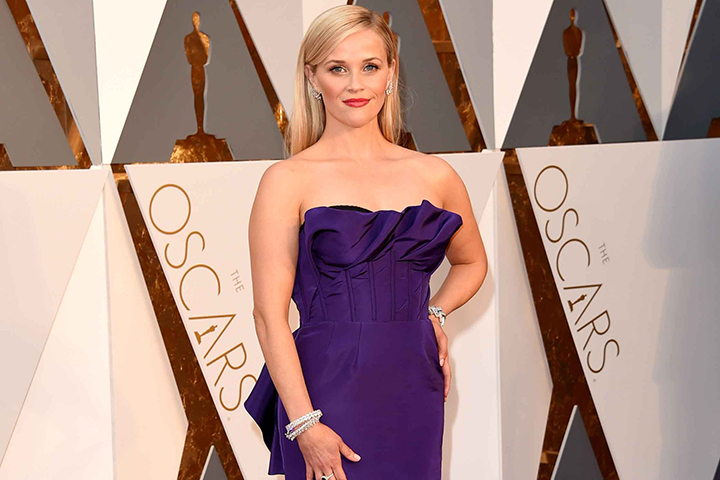
Talking to you as producers on this, you say the project is about women coming together and making things happen. That’s what you do as producers, yet so many projects. Why are you passionate about women’s projects, putting them forward?
RW: Certainly. I’m passionate because things have to change. We have to start seeing women as they really are on film, we have to, and not just in movie theaters on a tiny budget. We need to see real women’s experience, whether it involves domestic violence, whether it involves sexual assault, whether it involves motherhood or romance or infidelity or divorce. We need to see these things because we as human beings need to – we learn from art. And what can you do if you never see it reflected? I feel like, you know, the constant, you know, women of incredible talent playing wives and girlfriends with thankless parts. I just had enough and it’s a unique privilege to be able to come to other women with a piece of material that I feel deeply proud of and excited for to see their performances. And I mean, I get choked up when she talks about her performance because it’s truly gorgeous. I think it’s – these are the kinds of things that shift consciousness. So that’s where my passion lies.
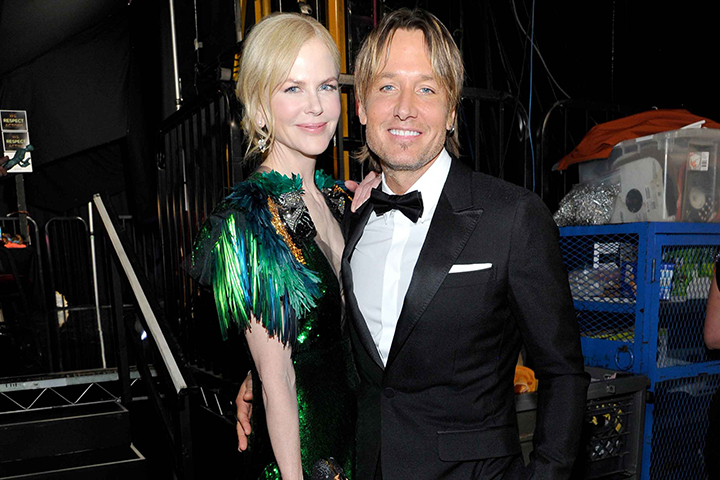
Nicole, your passion for producing?
NK: My passion for producing?
Would you talk about that?
NK:
“I love story telling. I love stories and I love the way in which we connect through stories. I mean, I have seen films, read books, seen pieces of art that – when I had been in very, very bad places have lifted me.”
I have seen – I mean, for me as a child, my whole life was books and I would get lost in books and they were my fantasy and that’s where I could go and a lot of times those were the things that saved me. So I’m interested in story telling. I love being an artist in this world now and connecting through art. And this – this piece for me was – yeah, it was the stories of women that I know and it was a way in which we could go to other women and say ‘Here’s a great role. There’s five great roles here. They’re all complicated. They all deserve to be told, and are you interested?’ And that is rare. It’s very, very rare to find five roles in one piece that we’d all jump at the chance to play any of them.
Nicole, as an Australian, the book is set in Australia, and is by an Australian author. What was it like navigating that shift of the book from Australia to Monterey?
NK: Yeah. I mean, the story lines are universal. But the thing that Jean-Marc felt very passionately about was that we needed water. It needed to be a town that had water. And when you see it, you see that that’s almost like a character in the piece now. And Jean-Marc’s connection to nature and the way in which he tells stories through that, we couldn’t – I mean, at one point we were looking at setting it in – where was it? In Laguna? And you were like ‘No, no, no. This has to be Monterey because I need the ocean.’
Finally, what is the appeal of speaking David Kelley’s words? I know it’s based on a book, but what does he bring to this?
NK: For me, my story line is very complicated and nuanced. From the minute I read it, it was so beautifully written. It was very, very easy to play and I have – I think one of the scenes is almost eight minutes, isn’t it? So there’s one scene that is eight minutes that John-Marc pretty much doesn’t cut. He uses a two-shot with Alexander and I. And the dialogue, not one word is changed. It was – it’s exquisitely written, so it was a joy when things just come. And sometimes as an actor you’re struggling to make things work. That was never the case for me with this. It just kind of flowed out. So thank you, David.
“Reading the novel for the first time, I saw myself in different stages of motherhood all through my life. So I was a mom when I was 22, like Jane; and then I was a mom who was 40, like Madeline…There were just so many aspects of it that were so relatable to the lives of women.”
– Reese Witherspoon
![]()
INTERVIEW: LUCY ALLEN/HOTFEATURES
PHOTOGRAPHS: GETTY






































